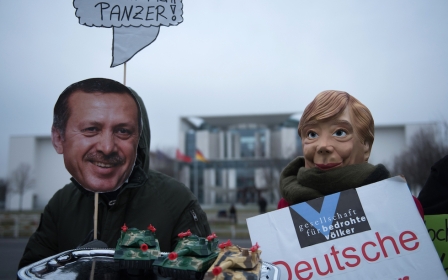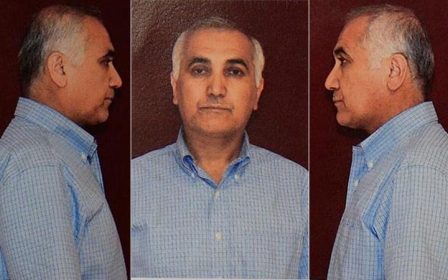Almost 1,000 attacks on Muslims reported in Germany in 2017: Report

German authorities registered at least 950 attacks on Muslims and their institutions, including 60 against mosques, in 2017, the Neue Osnabrueckner Zeitung reported on Saturday, citing data provided to lawmakers by the Interior Ministry.
The ministry said 33 people were injured in the attacks, some of which involved pig's blood, the newspaper reported.
No data were available for comparisons because the ministry only began separately collecting data about anti-Islamic attacks - as opposed to anti-migrant attacks - in 2017.
Nearly all those responsible for the attacks were right-wing activists, the data showed, according to the newspaper.
Aiman Mazyek, who heads the Central Council of Muslims, told the paper the number of attacks on Muslims and Muslim facilities was likely much higher given that many authorities were not yet monitoring anti-Islamic incidents specifically and victims often failed to make police reports.
Germany has welcomed more than 1 million refugees since 2015.
The far-right Alternative for Germany (AfD) won almost 13 percent of the votes in the September 2017 election and entered the parliament, raising fears over the prevalence of Islamophobia and anti-immigrant sentiments in Germany society.
The far-right party has surpassed the centre-left Social Democrats (SPD) for the first time in a national poll to become the second-strongest party, an Insa survey for the mass-circulation daily Bild showed last month.
New MEE newsletter: Jerusalem Dispatch
Sign up to get the latest insights and analysis on Israel-Palestine, alongside Turkey Unpacked and other MEE newsletters
Middle East Eye delivers independent and unrivalled coverage and analysis of the Middle East, North Africa and beyond. To learn more about republishing this content and the associated fees, please fill out this form. More about MEE can be found here.




